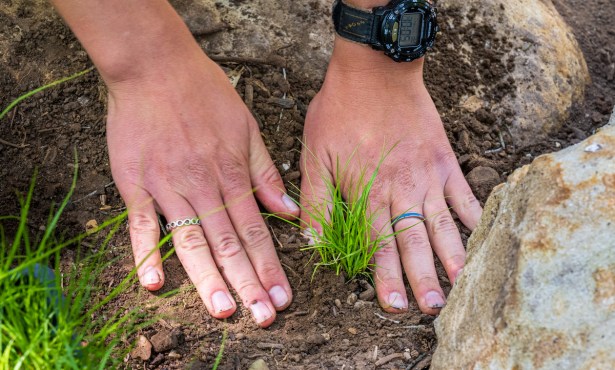Tough Early Life Leaves Fish Better Off, Study Says
Marine Biologists Shine Light on Ichthyoid Life Cycles, Longevity
Fish larvae who survive a difficult journey eventually arrive at shore reefs in better condition than locally produced fish, a study by UCSB marine biologists has found. The fish who endure the harsher conditions while young tend to fare better than those who have an easy early life. Members of this latter group arrives at reefs in varied conditions and tends to not survive as long. This phenomenon questions the “connectivity” – or the proportional contribution of different origins of the total population – of fish arriving at reefs through dispersal. This result is crucial in developing policies for the planning of marine reserves, a topic or global interest.
Scientists Scott Hamilton and Robert Warner studied the chemical components of otoliths – structures in the fishes’ ears – of the bluehead Wrasse to determine which oceans or shorelines the fish had traveled. Hamilton, a postdoctoral fellow in the Department of Ecology, Evolution and Marine Biology at UC Santa Barbara was the first author on the study, which was published in an online version of the Proceedings of the National Academics of Science (PNAS), while Warner – a professor of ecology, evolution, and marine biology, has studied the Wrasse since the 1970s.



